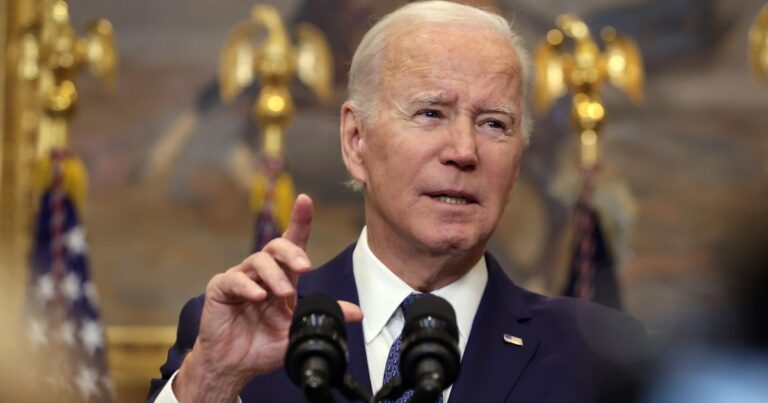
[ad_1]

The Biden administration said Monday it plans to end the nation’s COVID-19 public health emergency in May, more than three years after the virus first began circulating in the country.
The White House plans to renew the existing emergency declarations once more before they expire on May 11, allowing local governments and health care providers to transition back to pre-pandemic operations and avoid any chaos caused by an abrupt end to the declarations. Under the public health emergency, programs such as Medicare and Medicaid are able to provide extra funding to states to address pandemic-related care. Millions of Americans were able to receive free COVID-19 tests, and many are able to receive virus-related treatments without co-payments.
The emergency has been renewed every 90 days since the Trump administration first declared it in 2020, with the most recent renewal on Jan. 11. The Biden White House had said it would provide at least 60 days’ notice before ending the declaration.
“An abrupt end to the emergency declarations would create wide-ranging chaos and uncertainty throughout the health care system — for states, for hospitals and doctors’ offices, and, most importantly, for tens of millions of Americans,” the White House’s Office of Management and Budget said in a statement. “If the PHE were suddenly terminated, it would sow confusion and chaos into this critical wind-down.”
The end of the public health emergency will also end the controversial Title 42 border policy, which allows the government to expel foreign nationals and limit asylum seekers hoping to enter the U.S.
The plan signals the federal government is ready to move back into some semblance of normality. Many Americans are now vaccinated, including with booster shots, and the country has widespread access to updated inoculations and treatment regimens that dramatically reduce the risk of death and serious illness associated with the virus.
Still, on average more than 500 people in the U.S. are dying of COVID every day.
The World Health Organization said Monday that the COVID-19 pandemic remained a global health emergency but said it may change that declaration in the near future as the virus nears an “inflection point.”
“We remain hopeful that in the coming year, the world will transition to a new phase in which we reduce hospitalizations and deaths to the lowest possible level,” WHO Director-General Tedros Adhanom Ghebreyesus said Monday.
[ad_2]